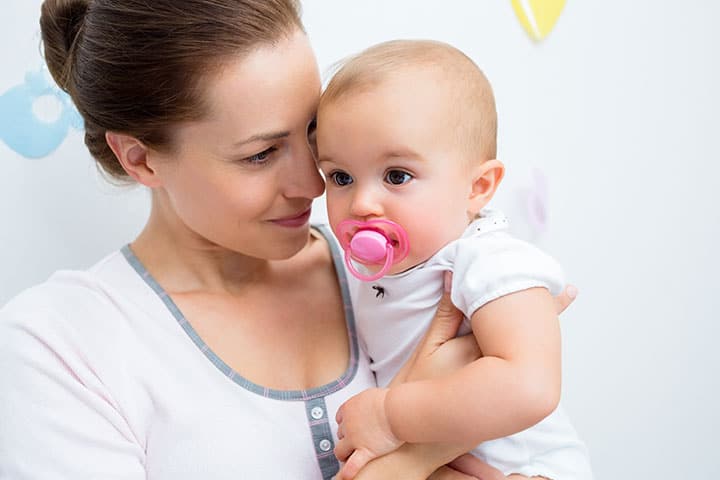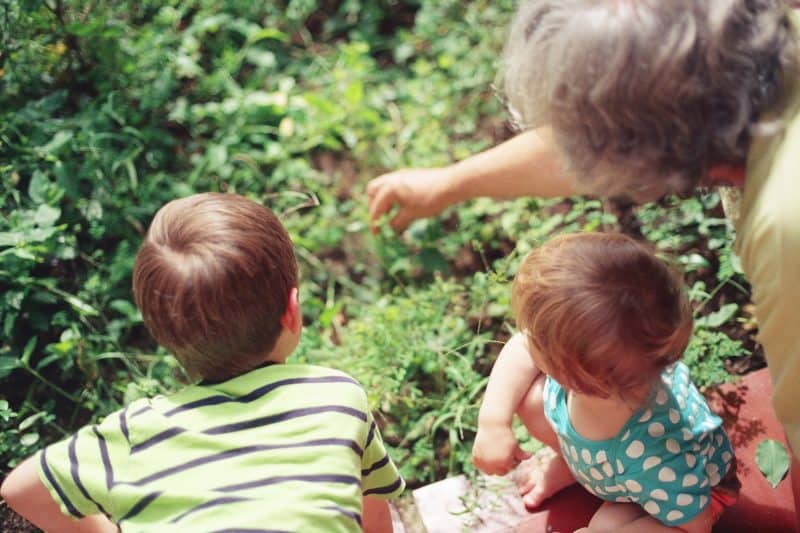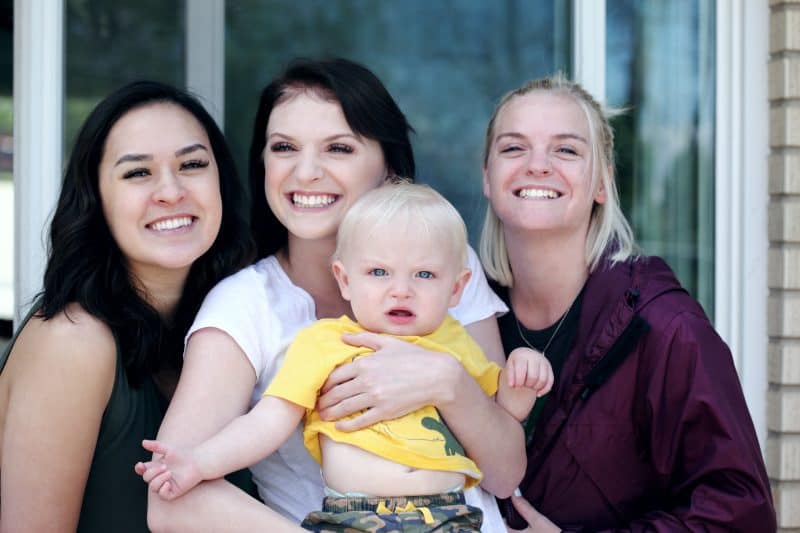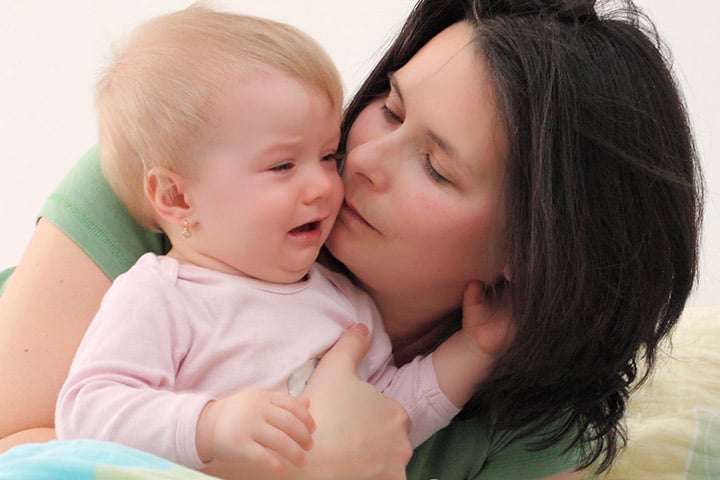Good news, your sleepless nights are over! Now you can have a good night sleep and wake up feeling fresh. This because your baby has learnt to sleep by himself and his internal clock has started functioning. Your baby can differentiate between night and day and is moving towards an established sleeping pattern.
During this time the baby needs 14 hours of sleep. At 4 months, the baby can sleep for eight hours at night without feeding. At five months, your baby can sleep for 10 to 11 hours at a stretch. The baby will sleep for four hours during the day which is spread over three naps. At 6 months, the baby needs 11 hours of uninterrupted sleep at night and three and a half hours of sleep during the day. So you notice that as your baby grows the sleep time reduces; this is based on physical demands of the baby’s body. As a result, you get enough time to rest and all the fatigue and crankiness will disappear.
Your baby is now finally 4 months of age, and is growing beautifully with each passing day. You may be finding it tough to deal with the highs and lows of parenthood now, and handling your baby’s sleep patterns may be the toughest of them all. No worries, here we’ve sorted out all the problems of handling a 4 to 6 month baby sleep issues.
4 – 6 Month Baby Sleeping Schedule:
The baby is well developed now and sleeps in a crib or in a separate room where he can have undisturbed sleep. If you use a co sleeper or a bedside crib make sure both you and your baby gets uninterrupted sleep, if not, then change your sleeping place and schedule. Remember, if you don’t get proper sleep you can’t become a responsive and cheerful parent, lack of sleep also paves way for health risks and depression.
For some children the witching hour begins in the evening. This is when your baby gets tired after all his attempts at rolling in the bed and crawling. If your baby becomes fussy and starts crying at 6 pm, make him ready for bed at 5:30 pm. So the baby falls asleep before the crankiness sets in.
The Expectations:
Around this age, most babies sleep a maximum of 15 hours in a day. This includes their night time sleep and day time naps. Typically, it is advised that now the babies start developing a regular sleeping or waking pattern. At the same time, they drop most of their night feedings. However, this doesn’t imply that a sudden-rigid sleeping program should be imposed upon the infant.
By now, your baby might have already started developing patterns that fit with your lifestyle. Still, it must be noted that babies grow the most in their sleep and so it is best to increase the sleeping hours to aid this growth.
Every child has their own developmental pattern. Carefully observe their reactions to the patterns you are trying to induce. If your baby is not ready, it will be a futile training exercise and then you must try again in subsequent months.
Sleep is vital for young children as it helps to restore energy and helps in brain development. Sleep also helps in physical development. Many hormones are secreted in the body that triggers various body processes that helps in growth. One such hormone is the protein hormone secreted by the pituitary gland and it is called ‘human growth hormone’. Many factors like proper nutrition and exercise helps the growth hormone to work on the body, however, the most important factor is sleep. Maximum growth hormone is secreted during sleep and helps the baby to develop. Though the growth hormone is secreted during the day, its intense secretion happens after the baby goes into a deep sleep.
Sleep problems like obstructive sleep apnea can disrupt the production of growth hormone and lead to stunted growth. Some children don’t produce enough growth hormone and lack of sleep aggravates the problem. This condition is called growth hormone deficiency and it affects the heart, lungs and immune system. However, this deficiency can be cured by giving a supplementary hormone prescribed by the pediatrician.
Children who lack sleep experience a change in the levels of other hormones circulating in the body. Shortage of sleep affects hormones that regulate appetite and hunger. As a result the child tends to overeat and only eats sugary foods and other food high on calorie. Lack of sleep makes it difficult for the body to metabolize the food and this leads to type 2 diabetes in the future.
Nothing is more relaxing than sleep, it is the natural stress buster. So allow your baby to sleep so that he grows to the maximum extent.
The Reality:
At this point of time, babies tend to start sleeping through the entire night for a good stretch of about 8 to 12 hours. If this is happening then you have achieved a milestone of sorts from where you can feel more rested in the mornings. But this is an ideal scenario as many times the babies wake up hungry and longing for your attention.
If you have cleared the first bullet, then the next problem is of babies waking up even after weeks and months of soundly sleeping through the night. This is not something surprising or alarming, but is very frustrating. This can mostly be because:
- The baby may be waking up crying for your company
- The baby may be working hard to roll over or sit up, and practices in his sleep, waking himself up.
Thus sleep habits are of utmost important at this juncture. Not just for the baby but the mother as well. If not properly developed, then you as a parent will be living like a cranky old hag who has nowhere to go and is frustrated out of sleep deprivation.
The Solutions:
Make proper sleep times and stick to them religiously. While it was on the baby’s terms when it was a new born, the sleep timing will gradually be regulated by the parents. While some babies doze off by 6pm others remain wide awake even beyond 9pm. If your baby still stays up at night, then it is a sign that the child is tired.
Parents can also plan the nap times for the child based on a two or three hour interval, whichever is convenient with your family schedules. Those facing problems should put them to sleep sooner as the babies tend to stay awake when they are tired and are not getting restful slumbers.
1. Create a Bedtime Routine:
Give your child a routine which will condition her to sleep each time. This may include-
- Running a bath: You can prepare a tub of lukewarm water and bathe your child. This will ensure good sleep. Check the temperature of water with your elbow.
- Changing for bed: Help your child change into a comfortable pajama before sleep. This will make the child understand that this is the time to sleep.
- Reading bedtime stories: You can read bedtime stories to your baby or show them colourful picture books. This will develop the baby’s mental faculty. He or she will remember some of these stories when he grows up! You will cherish these reading sessions later when the child grows up. So interact as much as possible with your six months baby.
- Singing lullaby: You can sing your child to sleep. You will be surprised to see your child smiling in sleep. He may even remember the tune. If you don’t have a gentle singing voice use a music system or iPod with some lullabies stored in them. Keep playing those lullabies on a very low volume. Some lullabies like rock a bye baby is very popular and will definitely put your baby to sleep instantly.
- Goodnight kiss:Plant a gentle kiss on your baby’s cheek after he or she fall asleep. This is very reassuring since babies feel secure when they receive their parent’s affection.
Babies thrive of timely consistency, so whatever the pattern it should be done at the same time each day in the same process flow; else, you won’t be able to condition the child. Much like the Pavlov’s experiment method whether the dogs were trained upon their meal times!
2. Wake Up Calls To Set The Daily Clock:
Like sleeping on time is important, waking up on time is equally important. One must wake them up at the right time to ensure that the 4- 6 month baby sleep routine cycle is properly followed during the day.
3. Let Your Baby Sleep By Themselves:
Even as adults sometimes we wake up during the night for small stretches but soon doze off to sleep again. This is the same in case of babies. Put them down when they feel drowsy. This will ensure that the baby will learn to snooze by themselves. If this works, great; if not, one will have to look for alternative ways to do so.
4. Time to Co-Sleep:
At this age, the child outgrows the bassinet and enters the crib. Make sure that all the naps are taken in the crib over the day. And sleep with your baby as the baby needs a cheerful parent to enable them to have better sleep cycles. Besides, prolonged exhaustion on part of the parents can lead to their own health hazards.
Why Do Babies Wake Up At Night?
Most babies wake up at night and cries out for their parents. Some babies however sleep uninterrupted. Sleeping pattern varies from one individual to another, both in adults and babies.
There are 10 reasons why babies suddenly wake up at night. They are listed here:
1. Sleep Cycle:
Babies wake up at night because their brainwaves shift and change cycles. The babies shift from rapid eye movement (REM) sleep to stages of non-rapid eye movement sleep. The different wave patterns the brain makes defines these sleep cycles or stages of sleep. As babies move from one stage of sleep to another they undergo transition. It is during transition that the baby wakes up and cries out. He may be hungry. It is normal for babies to wake up 4-5 times at night.
At 4 months the babies wake up after the first slot of deep sleep. This normal as the baby starts developing the habit of deep sleep. The parents should encourage the baby to sleep independently so that uninterrupted sleep during night becomes a reality.
2. Brain Waves:
Most babies can sleep for 6 hours at a stretch when they are below 6 months. Once the baby crosses 6 months then they have brain waves which are similar to that of the adults. This means the baby is gradually becoming mature in terms of sleep. At 6 months the baby’s brain waves resemble that of the 18 year olds. However, the baby will still call out your name or cry when he or she wakes up during the middle of the night.
3. Good versus Bad Sleepers:
Some babies are naturally better sleepers. But some good sleepers can have bad habits. So as a parent your responsibility is to develop good sleeping habits in children. For instance, maintaining consistency is vital since babies are stickler for routine. They build habitual associations like nursing to sleep, rocking to sleep or being held to fall asleep. So how you will put your child to sleep the choice is yours but you need to maintain the same method every time.
4. Crying is Normal for Babies:
Don’t feel perturbed if your baby starts crying at night suddenly. There is a huge debate that crying is harmful for the baby. But that is a myth. Pediatricians recommend that you should allow the child to learn to self soothe or cry out once. Babies belonging to the 4-6 months age bracket learn to self soothe by sucking thumb.
5. Development:
Developmental patterns shift or change in sleep patterns. Babies ay 4 months sleep for prolonged hours and then wake up suddenly. When awake they will roll over or cry with fright. At 6 months the babies try to explore their surroundings. The developmental milestones keep the babies awake late at night. During nine months the baby can stand up independently holding on to the crib. They sleep less. So don’t be surprised to see your baby standing up in the crib in the middle of the night ready to rock and roll.
6. Teething:
Teething pains keep the child awake throughout toddlerhood.Teething pains starts at 6 months so you will see baby chewing teething toys more often. Acetaminophen is the only medicine recommended for toddlers to reduce the teething pain and ensure proper sleep.
7. Behavioural Changes:
Babies belonging to the 6-9 months age group stay awake more often. They are more self-aware and independent. Suddenly you find the baby babbling and making noises. No need to go near them if they are not fussing. By nine years they develop separation anxiety and that change their sleep patterns to a great extent. They will scream out if they find that you are not by their side. You can sleep with your baby during this time; they will feel secure and happy.
8. Infection:
The baby develops this habit of putting everything in his mouth. This can cause stomach infection, vomiting, diarrhea and fever. Infection and sickness changes the pattern of sleep automatically. Babies who also have respiratory problems like congestion and cough find it difficult to sleep. Don’t worry; the sleeping pattern will become normal soon after the illness starts if you can maintain good sleep routines.
9. Pacifiers or Bottle:
Some babies like to suck a bottle while falling to sleep. This habit starts at birth when the baby falls asleep while breastfeeding or sucking a bottle of warm milk or water.The baby will wake up once the pacifier falls out of the mouth. So it is best to stop this habit of using pacifiers and bottles altogether. Though it will take time for the baby to unlearn the habits but it will die down gradually.
10. Parent’s Role at Night:
Research shows that parents can actually change the baby’s sleeping patterns. Sleep disorders are affected by the number of times the baby is comforted by the parents at night. If the parents stay in the same room until the baby fall asleep, shifts him to the crib after the baby falls asleep and pulls him out of the crib several times at night to comfort the baby, the baby experiences more sleep challenges. A Tel Aviv study in 2010 shows if fathers also help the child to fall asleep along with mothers then the child tends to wake up less at night and have interrupted sleep.
So the moral of the story is to take turns.
Babies are more disciplined than adults as they love routines and consistency. So as a parent if you want to inculcate some good sleeping habits in babies then you have to follow a strategy or plan. If you put your child to sleep at the same time every day he will naturally develop the good habit of going to sleep on time and wake up early. As the popular saying goes ‘early to sleep and early to rise, makes you healthy, wealthy and wise’, your baby’s good health is the biggest wealth.
Do share your experiences in managing your 4 to 6 months baby sleep pattern in the comment section below:





















